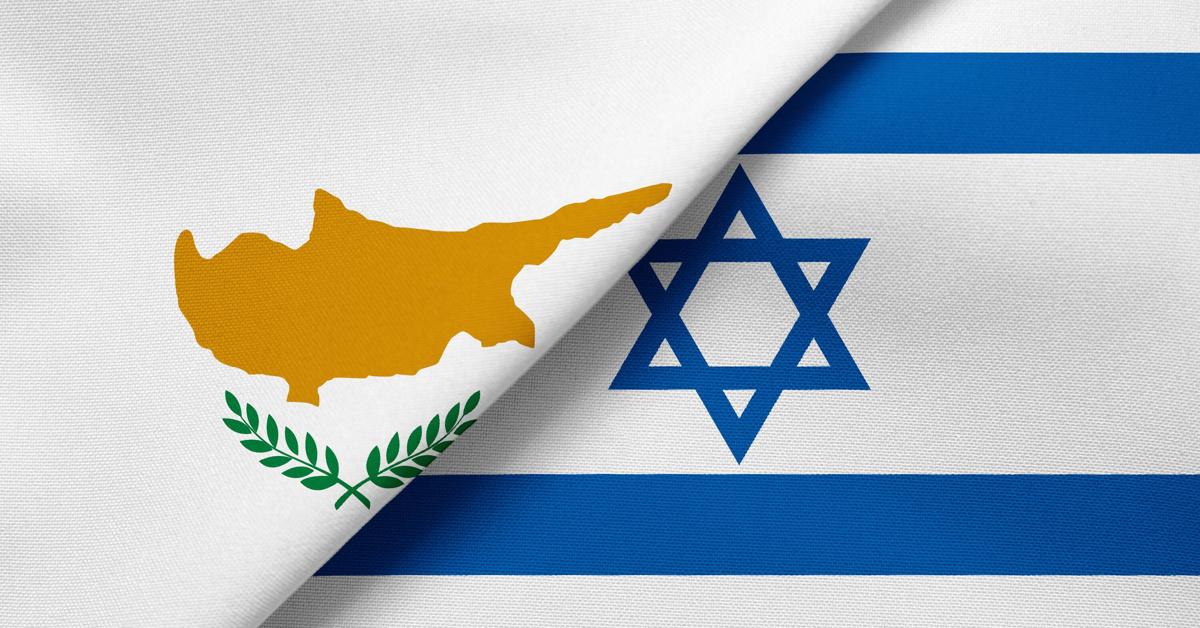Implications for Regional Security
Implications for Regional Security
By Erkin Feyyaz Eşli
Recent media reports have drawn attention to the mass relocation of Israeli nationals to the Republic of Cyprus and their increasing purchases of real estate across the island. This trend has sparked accusations of a growing Israeli presence in Cyprus. However, Associate Professor Emete Gözügüzelli from the Department of International Law at the Social Sciences University of Ankara (ASBÜ) emphasized that the issue extends beyond humanitarian concerns and poses a potential threat to the national security of both Türkiye and the Turkish Republic of Northern Cyprus (TRNC).
These developments must be viewed in the broader context of the ongoing Cyprus conflict, whose roots date back to the mid-20th century. Following decades of British colonial rule, Cyprus gained independence in 1960 under the London and Zürich Agreements signed by the United Kingdom, Türkiye, and Greece. These agreements established the Republic of Cyprus as a bi-communal state with shared governance between Greek and Turkish Cypriots and included sovereignty guarantees from the three guarantor states. However, by 1963, this delicate power-sharing arrangement had collapsed amid widespread intercommunal violence. Turkish Cypriots were effectively excluded from government institutions and subjected to persecution, leading to their forced isolation into enclaves and the deployment of the United Nations Peacekeeping Force in Cyprus (UNFICYP) to restore order.
Tensions reached a breaking point in 1974, when a Greek-backed coup in Nicosia aimed at enosis—the unification of Cyprus with Greece, a long-standing nationalist goal in Greek Cypriot politics—prompted Türkiye to launch a military operation to protect the Turkish Cypriot population. As a result, the northern part of the island came under Ankara’s control, and in 1983, the Turkish Republic of Northern Cyprus (TRNC) was declared—recognized solely by Türkiye. The Republic of Cyprus, by contrast, continues to be recognized by the international community as the island’s sole legitimate authority, a position reaffirmed in numerous United Nations Security Council resolutions. The conflict remains unresolved, taking on new dimensions within contemporary strategic and military dynamics in the region.
Since late 2024, Israel has markedly expanded its military footprint in the Eastern Mediterranean, positioning itself for potential confrontation with Türkiye. A key aspect of this shift has been the deployment of Israeli air defense systems on the territory of the Republic of Cyprus. According to reports from Reuters, The Jerusalem Post, and The Times of Israel, arms deliveries to Nicosia began in December 2024—coinciding with a political crisis in Syria that culminated in a change of leadership.
Among the systems delivered were Barak MX air defense missile systems, with a range exceeding 150 kilometers. These batteries are capable of covering the entire territory of the TRNC, as well as parts of Syria’s coastline and southern Türkiye. Importantly, Israel appears unwilling to limit its expansion to air defense systems alone. Israeli media have referred to the Republic of Cyprus as one of the country’s most strategically valuable partners, and military analysts estimate that, in the near term, Israeli-manufactured systems could account for up to 70% of Cyprus’s total defense arsenal.
By expanding its air defense coverage, Israel seeks to reinforce its control over the airspace and maritime corridors of the Eastern Mediterranean. These developments deepen the Cyprus conflict by amplifying geopolitical frictions in the region, as the growing imbalance in military capacity will inevitably lead to heightened tensions. This dynamic is likely to compel Türkiye to increase its support for the Turkish Republic of Northern Cyprus (TRNC). In this context, such actions by Israel may amount to the opening of a new, potentially active and strategically consequential front for Türkiye—one that could demand sustained military and diplomatic engagement. As a result, Ankara could be compelled to reallocate attention and resources away from other regional theaters, particularly Syria—something Tel Aviv may exploit to further consolidate its influence in the Middle East.
The growing Israeli presence is also expected to aggravate the protracted socio-political crisis in Syria, which remains unresolved eight months into the presidency of Ahmed al-Sharaa. Should Türkiye reduce its engagement in Syria, and if the al-Sharaa government refuses to make territorial or political concessions to Israel, Tel Aviv may resort to efforts aimed at destabilizing the regime—including the orchestration of a new coup d’état, or even considering direct military intervention—reminiscent of its past operations in Gaza and Lebanon—with the goal of installing a proxy regime in Damascus aligned with its interests.
As noted by a leading Turkish military analyst, Ankara must pay close attention to Israel’s growing military infrastructure in the Eastern Mediterranean. He stressed the need to utilize comprehensive diplomatic tools—including United Nations mechanisms, the OSCE, and other international platforms—to exert pressure on the Republic of Cyprus. Furthermore, he argued that Türkiye should clearly articulate its position: that the current developments constitute a direct threat to its national security and that it reserves the right to take decisive military, political, and economic measures in response.
The expansion of Israel’s influence over the Republic of Cyprus could reshape the strategic landscape of the Eastern Mediterranean. Tel Aviv’s increased military and political presence poses serious challenges not only to Türkiye and the TRNC, but also to the stability of the entire region. These developments have already received international attention: in the final declaration of the “Eastern Mediterranean–Black Sea” conference held in Istanbul on July 18–19, 2025, the Republic of Cyprus was explicitly identified as an integral component of a Western military-strategic axis centered on Israel.
















Leave a Reply